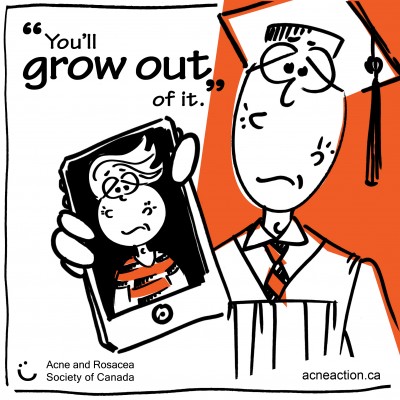Acne Awareness Week aims to reduce stigma associated with acne
- by Emily Innes-Leroux, Associate Editor
- Sep 7, 2016
- 1 min read
The Acne and Rosacea Society of Canada has designated September 19 to 25, 2016 as Acne Awareness Week in Canada and it is being featured on Health Canada’s Calendar of Health Promotion Days.
According to the non-profit organization, the emotional impact of acne on teens is being underestimated, leaving young people without support or help during a critical period in their lives.
“Acne is typically dismissed as a cosmetic issue but it is often felt far deeper because it affects appearance and happens during a time of change—physical, emotional, and social,” said Vancouver dermatologist and society president, Dr. Jason Rivers, in a press release. “The emotional impact of acne—from lower self-esteem to anger, embarrassment, social anxiety and depression—can be far worse than the physical impact and can seriously affect lives.”
To raise awareness about the emotional impact of acne, the society has created three cartoons featuring teens and some common, insensitive acne myths.
“Acne can affect the development of self-image and assertiveness in teens—factors that are important in forming friendships and dating. Having acne has also been associated with teasing, bullying and eating disorders,” added Dr. Rivers. “Some teens are growing their hair to cover their face, avoiding eye contact, wearing heavy makeup to hide spots, avoiding sports like swimming if they have body acne and missing school.”
“Recognizing the emotional impact of acne and offering support and help to sufferers can limit psycho-social harm,” he said. “There are safe and effective over-the-counter or prescription acne treatments to help with this condition. Studies have shown outlook improves as acne improves. And who wouldn’t want a happier teen in their home?”






